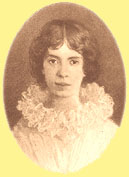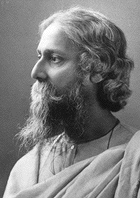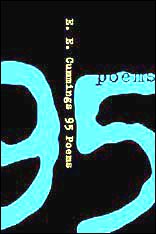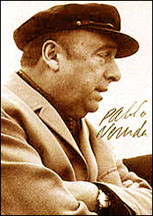|
On the Number 95
| |||||
| 1) | The 48th odd number = 95 | ||||
| 2) | Product of the 3rd and 8th prime numbers = 5 x 19 = 95 | ||||
| 3) | Sum of the 27th & 38th composite numbers = 40 + 55 = 95 | ||||
| 4) | Sum of the 30th & 34th composite numbers = 45 + 50 = 95 | ||||
| 5) | Sum of the 14th abundant number & 15th composite number = 70 + 25 = 95 | ||||
| 6) | Sum of the 3rd, 5th and 22nd prime numbers = 5 + 11 + 79 = 95 | ||||
| 7) | Sum of the 1st, 5th, and 6th Mersenne numbers, (2n - 1): 1 + 31 + 63 = 95 | ||||
| 8) | Sum of the 1st, 2nd, 3rd, and 9th square numbers = 12 + 22 + 32 + 92 = 1 + 4 + 9 + 81 = 95 | ||||
| 9) |
Sum of the 1st, 5th, and 11th Fibonacci numbers
= 1 + 5 + 89 = 95 (Leonardo Pisano Fibonacci, 1170-1250) | ||||
| 10) | The 30th & 31st digits of pi = 95 | ||||
| 11) | The 167th & 168th digits of phi = 95 | ||||
| 12) |
Atomic Number of
Americium (Am) = 95 (95 protons & 95 electrons) Americium is a radioactive silvery-white metal named after America. | ||||
| 13) |
The 95th day of the year (non-leap year) =
April 5 [French rococo painter, Jean-Honoré Fragonard (1732-1806) was born on April 5, 1732] | ||||
| 14) |
 Jiu Shí Wu
is the Chinese ideograph for 95.
Jiu Shí Wu
is the Chinese ideograph for 95.
| ||||
| 15) | The Roman numeral for 95 is XCV. | ||||
| 16) |
Martin Luther (1483-1546) nailed the "Disputation on the Power and Efficacy of Indulgences"
commonly known as the
95 Theses to the
Church's door at Wittenberg (October 31, 1517) and gave birth to the Protestant Reformation. | ||||
| 17) |
.jpg) Swany Rose
Swany RoseCategory: Groundcover Seed: Rosa sempervirens Pollen: Mlle Marthe Carron Bred in: France by Meilland Color: pure white Type: cupped, very double Size: 1.5'x 6' Fragrance: mild fragrance Petals: 95 petals Year: 1978 | ||||
| 18) |
British writer John Evelyn
found 95 stones at
Stonehenge (Diary, July 22, 1654). John Ray (1662) and Sir John Clerk (1727) found
94 stones. Jonathan Swift (1730) found 93 stones. Christopher Chippindale, Stonehenge Complete (1994), p. 46. (Stonehenge & Druids) | ||||
| 19) | Erte at Ninety-Five was published in 1987 by E.P. Dutton. 163 of Erte's work in serigraph and other graphic methods were reproduced in full color. (Erte's art) | ||||
| 20) | The 95 Percentile Person is 76 inches in height and weighs 225 lbs. A 50 Percentile Person has an average height of 69.1 inches and weighs 172 lbs. | ||||
| 20A) |
Los Angeles Lakers' Magic Johnson
holds the record for most assists
made— 95, in a 7-game NBA Finals Series against the Boston Celtics (1984) The Official NBA Encyclopedia, 3rd Ed. (2000), p. 878 | ||||
| 20B) |
Los Angeles Lakers' Jerry West
holds the record for most free throw attempts
— 95, in a 6-game NBA Playoff Series against the Baltimore Bullets (1965) The Official NBA Encyclopedia, 3rd Ed. (2000), p. 870 | ||||
| 21) | I-95 is the major north-south highway along the East Coast of the United States. Construction of Interstate-95 Pennsylvania was approved in 1947 and was concluded in 1960. It was later named the Vietnam Veterans Memorial Highway. | ||||
| 22) |
I-95 of the
New Jersey Turnpike runs 122 miles from Delaware Memorial Bridge to the George Washington Bridge. It was constructed in 1950-1952. | ||||
| 23) | 95th Street, Fort Hamilton is the next and last stop of the BMT 4th Avenue Subway Line in New York City. The island platform has exits to 93rd at the north end and 95th at the south end of the full mezzanine with booths at both ends. | ||||
| 24) | Microsoft Windows 95 was released in August of 1995. It is a 32-bit system providing full pre-emptive multitasking, advanced file systems, threading, networking and more. Includes MS-DOS 7.0, but takes over from DOS completely after starting. Also includes a completely revised user interface. (History of Microsoft Windows) | ||||
| 25) |
50S Ribosomal Protein L21 is
95 amino acids long with a molecular weight of 10399 Daltons. | ||||
| 26) |
95 is cited twice in the Bible (referring to the children who left Babylon for Jerusalem): The children of Gibbar, ninety and five Ezra 2:20 (536 B.C.) The children of Gibeon, ninety and five Nehemiah 7:25 (536 B.C.) | ||||
| 27) |
Hymn 95 in Book 1 of the
Rig Veda
is a song of praise to Agni, the God of Fire: Who of you knows this secret One? The Infant by his own nature hath brought forth his Mothers. The germ of many, from the waters' bosom he goes forth, wise and great, of Godlike nature. Visible, fair, he grows in native brightness uplifted in the lap of waving waters. He makes him a most noble form of splendour, decking him in his home with milk and waters. The Sage adorns the depths of air with wisdom: this is the meeting where the Gods are worshipped. Wide through the firmament spreads forth triumphant the far-resplendent strength of thee the Mighty. Kindled by us do thou preserve us, Agni, with all thy self-bright undiminished succours. Fed with our fuel, purifying Agni, so blaze to us auspiciously for glory. Rig Veda Book 1, 95.4-5, 8-9, 11 (circa 1500 B.C.) | ||||
| 28) |
95th word of the King James Version of the Bible's Old Testament Genesis = be
1: In the beginning God created the heaven and the earth. 2: And the earth was without form, and void; and darkness was upon the face of the deep. And the Spirit of God moved upon the face of the waters. 3: And God said, Let there be light: and there was light. 4: And God saw the light, that it was good: and God divided the light from the darkness. 5: And God called the light Day, and the darkness he called Night. And the evening and the morning were the first day. 6: And God said, Let there be a firmament in the midst of the waters, and let it divide the waters from the waters. — Genesis I.1-6 (1611) | ||||
| 29) |
The 95th Psalm sings praise to the Lord: O come, let us sing unto the LORD: let us make a joyful noise to the rock of our salvation. Let us come before his presence with thanksgiving, and make a joyful noise unto him with psalms. For the LORD is a great God, and a great King above all gods. In his hand are the deep places of the earth: the strength of the hills is his also. The sea is his, and he made it: and his hands formed the dry land. O come, let us worship and bow down: let us kneel before the LORD our maker. Psalms 95:1-6 | ||||
| 30) |
95th Verse of Buddha's
Dhammapada: Canto VII— The Holy One He who is unperturbed like the earth, who is steadfast like Indra's post (in the portal of a city), whose character is as pure and translucent as a clear lake, to such a holy one there are no further cycles of rebirth (samsara). Buddha, Dhammapada Verse 95 (240 B.C.) (translated by Harischandra Kaviratna, Dhammapada: Wisdom of the Buddha, 1980) | ||||
| 31) |
95th Verse of the
Bhagavad Gita (Krishna's lecture to Arjuna on karma yoga): Do thy work in the peace of Yoga and free from selfish desires, be not moved in success or in failure. Yoga is evenness of mind— a peace that is ever the same. (2:48) Bhagavad Gita Chapter 2, Verse 48 [note: 47 verses in Ch. 1] (Translated by Juan Mascaro, Penguin Books, 1962, p. 52) | ||||
| 32) |
95th Verse in Chapter 18 of
Astavakra Gita (Sage Astavakra's dialogue with King Janaka): He who has realized spiritual knowledge is engaged in thoughts even when devoid of thoughts, possessed of sense organs even when devoid of sense organs, possessed of intelligence even when devoid of intelligence, possessed of egoism even when devoid of egoism. Astavakra Gita Chapter 18, Verse 95 (circa 400 B.C.) | ||||
| 33) |
95th Aphroism Patanjali's
Yoga Sutra: By study comes communion with the desired deity. Vyasa Commentary: The gods, the Rishis and the Siddhas become visible to him who is given to study, and they do take part in his work. Patanjali (circa 200 B.C.), Yoga Sutra II.44: Aphroism 95 (circa 200 B.C.) translated by Rama Prasada, Munshiram Manoharlal Publishers, New Delhi, 1995, p. 168 | ||||
| 34) |
95th Book of Enoch describes Enoch's grief:
Oh that mine eyes were [a cloud of] waters That I might weep over you, And pour down my tears as a cloud of waters: That so I might rest from my trouble of heart! Woe to you, sinners, for ye persecute the righteous; For ye shall be delivered up and persecuted because of injustice, And heavy shall its yoke be upon you. — Book of Enoch XCV.1, 7 (circa 105 B.C.-64 B.C.) translated by R. H. Charles, S.P.C.K., London, 1917, p. 136 | ||||
| 35) |
95th Saying of
Gospel of Thomas: Jesus said: If you have money, do not lend at interest, but give [it] to him from whom you will not receive them back. Gospel of Thomas 95 (114 sayings of Jesus, circa 150 A.D.) (translated by Thomas O. Lambdin, 1988) | ||||
| 36) |
95th Trigraph of the Ling Ch'i Ching: Pi Shih / Shuning the World The image of hiding far away Insulting yang with yin Oracle: The menial realize their ambitions, the perfected lose their Tao. Abandoning my thatched house, I enter the marshy grasses. Verse: The imperial carriage has departed from the vermillion steps, Mountain finches have soared into the blue sky. Perverse ministers increasingly usurp official position, Worthy individuals find it advantageous to hide and flee.
Tung-fang Shuo, | ||||
| 37) |
95th Verse of Chapter 2 in
Lankavatara Sutra: Mahamati the Bodhisatva-Mahasattva's Questions to the Buddha: Do you ask me about Buddhas of Transformation, Buddhas of Maturity [or Recompense]? About Buddhas of the Knowledge of Suchness? And whence is the Bodhisattva? The Lankavatara Sutra (before 443 AD) (translated from the Sanskrit by D. T. Suzuki, 1932, p. 31) | ||||
| 38) |
Chapter 95 of Mohammed's
Holy Koran is titled "The Fig" I swear by the fig and the olive, And mount Sinai, And this city made secure, Certainly We created man in the best make. Then We render him the lowest of the low. Except those who believe and do good, so they shall have a reward never to be cut off. Then who can give you the lie after (this) about the judgment? Is not Allah the best of the Judges? Mohammed, Holy Koran Chapter 95.1-8 (7th century AD) (translated by M. H. Shakir, Koran, 1983) | ||||
| 39) |
95th Verse of Chapter 8 in Santideva's Bodhicaryavatara: Since a neighbor and I are equal in desiring happiness, what is the unique quality of the "self" which requires an effort for happiness? Santideva's Bodhicaryavatara: Entering the Path of Enlightenment VIII.95 (Perfection of Contemplation: Dhyana-paramita) (circa 700 AD) (translated by Marion L. Matics, Macmillan, London, 1970, p. 202) | ||||
| 40) |
95th Verse of Chapter 9 in Santideva's Bodhicaryavatara: There is no entering into an atom by an atom; it is equal (to the other atom) and without free space. Without entering there is no mingling, there is no contact. Santideva's Bodhicaryavatara: Entering the Path of Enlightenment IX.95 (Perfection of Wisdom: Prajña-paramita) (circa 700 AD) (translated by Marion L. Matics, Macmillan, London, 1970, p. 220) | ||||
| 41) |
Section 95 of Record of the Chan Master "Gate of the Clouds": Someone asked Master Yunmen, "What is it like when the tree has withered and the leaves fallen?" The Master said, "That's wholly manifest: golden autumn wind." Master Yun-Men (864-949), Record of the Chan Master "Gate of the Clouds" translated by Urs App, Kodansha International, NY & Tokyo, 1994, p. 131 | ||||
| 42) |
Case 95 of
Hekiganroku: Chokei and Hofuku Discuss the Buddha's Words Main Subject: Chokei one day said, "Even if you say that the Arhats still have three poisons, you should not say that the Buddha has two languages. I do not say that the Buddha has no language but that he does not have two languages." Hofuku said, "What is the Buddha's language?" Chokei said, "How can a deaf person hear it?" Hofuku said, "I know you are speaking from a secondary principle." Chokei said, "What is the Buddha's language?" Hofuku said, "Have a cup of tea." Setcho's Verse: Who speaks from the first, who from the second principle? Dragons do not lie in puddles; Where dragons lurk, Waves arise when no wind blows. Oh! You Ryo Zen monk, You've bruised your head on the Dragon's Gate. Setcho (980-1052), Hekiganroku, 95 (Blue Cliff Records) (translated by Katsuki Sekida, Two Zen Classics, 1977, pp. 388-389) | ||||
| 43) |
Section 95 of Chu Hsi's Chin-ssu lu: Make up your mind for the sake of Heaven and Earth. Establish the Way for the sake of living men. Continue the learning that has been interrupted for the sake of past sages. And inaugurate great peace for the sake of the next ten thousand generations. Chu Hsi (1130-1200), Reflections on Things at Hand (Chin-ssu lu) translated by Wing-Tsit Chan Columbia University Press, NY, 1967, p. 83 | ||||
| 44) |
Verse 95 of Rubáiyát, of
Omar Khayyam (1048-1122): And much as Wine has play'd the Infidel, And robb'd me of my Robe of Honour— Well, I wonder often what the Vintners buy One half so precious as the stuff they sell. (translated by Edward Fitzgerald, London, 1st Ed. 1859, 2nd Ed. 1868) | ||||
| 45) |
Condwiramur's beauty in the 95th Line of Eschenbach's
Parzival: Condwiramur, with thee I will Compare this red and whiteness. God enriches me with brightness, Since here the like of thee I spy. I praise the hand of God on high And all the creatures that are His. Condwiramur, thine image 'tis, Since white snow under the blood doth show And blood has rendered red the snow. Wolfram von Eschenbach (1165-1217) Parzival (1195) Book VI "Parzival at King Arthur's Court" Lines 88-96 (translated by Edwin H. Zeydel & Bayard Quincy Morgan, University of North Carolina, Chapel Hill, 1951, p. 145) | ||||
| 46) |
Book III, Verse 95 of Rumi's Mathnawi: Dance, when you're broken open. Dance, if you've torn the bandage off. Dance in the middle of the fighting. Dance in your blood. Dance, when you're perfectly free. Jelaluddin Rumi (1207-1273), Mathnawi, III.95-97, The Essential Rumi, (Translated by Coleman Barks with John Moyne, 1995, p. 281) | ||||
| 47) |
Beatrice smiles to Dante in the 95th line of
Paradiso:
| ||||
| 48) |
Verse 95 of Hafiz: The Tongue of the Hidden: My life is spent; it was a precious sum Spent like an arrow for the bow's short thrum. An arrow sped does not return; but oh, Except Love, which lasts forever... Come back, my Love, and back my life will come! Hafiz (1320-1389), Hafiz: The Tongue of the Hidden, Verse 95 adaptation by Clarence K. Streit, Viking Press, NY, 1928 (Author on Time cover, March 27, 1950) | ||||
| 49) |
Line 95 from the Pearl Poet's Pearl:
"here in all their splendour bright"
(Ed. Malcolm Andrew & Ronald Waldron, 1987, p. 59) (This Pearl translation: by Bill Stanton, another by Vernon Eller) | ||||
| 50) |
Line 95 from the Pearl Poet's
Sir Gawain and the Green Knight: A knight's adventure in jousting: Of (feats of) arms, of other adventures, or else (until) some man had asked him for a true knight to join with him in jousting, to place themselves in jeopardy, stake life against life, each to allow the other to have the better as fortune favoured them. Sir Gawain and the Green Knight (c. 1375-1400) Lines 95-99 ( Edited by J.J. Anderson, Everyman, London, 1996, p. 171) | ||||
| 50A) |
Section 95 of Wang Yang Ming's Instructions for Practical Living: I asked, "To hold the will firm is like having a pain in the heart. As the whole mind is concentrated on the pain, how can there be time for idle talk or being a busybody?" The Teacher said: “This is good as an initial effort. But the student must be made to understand that the spiritual intelligence of the mind comes in and goes out at no definite time and without anyone's knowing its direction, and that it is originally this way. Only in this way can one'e effort find a solution. If one merely holds his will rigidly, I am afraid his effort will encounter trouble.” Wang Yang Ming (1472-1529), Instructions for Practical Living or Ch'uan-hsi lu (1518), I.95 (translated by Wing-tsit Chan, Columbia University Press, NY, 1963, p. 58) | ||||
| 51) |
Man's virtues & vices in 95th Sonnet of William Shakespeare: How sweet and lovely dost thou make the shame Which, like a canker in the fragrant rose, Doth spot the beauty of thy budding name! O! in what sweets dost thou thy sins enclose. That tongue that tells the story of thy days, Making lascivious comments on thy sport, Cannot dispraise, but in a kind of praise; Naming thy name blesses an ill report. O! what a mansion have those vices got Which for their habitation chose out thee, Where beauty's veil doth cover every blot And all things turns to fair that eyes can see! Take heed, dear heart, of this large privilege; The hardest knife ill-used doth lose his edge. William Shakespeare (1564-1616), Sonnets XCV, Commentary | ||||
| 52) | 95th Section of Swedenborg's Worlds in Space (1758): The stone bird was also a representation of the inhabitants of that world [Mars] who in a strange manner transform the thoughts and affections of their life into one which hardly exists... I was informed by angels that they were spirits from the world of Mars, who possessed the trick of talking among themselves without the other spirits present understanding or perceiving anything... they express by means of the lips and face, so that others cannot understand them... But although they fancy that their conversations among themselves are not intelligible to others, still angelic spirits perceive all the details of their conversations. This is because not all the thoughts behind them can be withdrawn. Emanuel Swedenborg (1688-1772), The Worlds in Space, 95 (translated from Latin by John Chadwick, Swedenborg Society, London, 1997, pp. 67-70) | ||||
| 53) |
95th Poem of Thomas Cole:
| ||||
| 54) |
Chapter 95 of Melville's
Moby-Dick (1851): Bible leaves! Bible leaves! This is the invariable cry from the mates to the mincer. It enjoins him to be careful, and cut his work into as thin slices as possible, inasmuch as by so doing the business of boiling out the oil is much accelerated, and its quantity considerably increased, besides perhaps improving it in quality. Herman Melville (1819-1891), Moby-Dick, Chapter 95: The Cassock | ||||
| 55) |
95th Poem of Emily Dickinson:
| ||||
| 56) |
95th New Poem of Emily Dickinson: It is of Realm's unratified that Magic is made. Emily Dickinson (Letter 472 to Mrs. T.W. Higginson, late summer 1876) New Poems of Emily Dickinson (edited by William H. Shurr, University of North Carolin Press, 1993, p. 27) | ||||
| 57) |
"Secret of impassive earth" in Line 95 of Walt Whitman's
Passage to India (1871): Ah, who shall soothe these feverish children? Who justify these restless explorations? Who speak the secret of impassive Earth? Who bind it to us? What is this separate Nature, so unnatural? What is this Earth, to our affections? Walt Whitman (1819-1892) Passage to India Section 5, Lines 93-97 A Textual Variorum of the Printed Poems, Vol. III, Poems, 1870-1891 (Edited by Sculley Bradley, Harold W. Blodgett, Arthur Golden, William White New York University Press, 1980, p. 567) | ||||
| 58) |
| ||||
| 59) |
95th Page lines in James Joyce's Finnegans Wake, (12 samples): Minster York? Do I min? I mind the gush off the mon like Bal- (95.2) lybock manure works on a tradewinds day. And the O'Moyly (95.3) my way! Ah dearome forsailoshe! Gone over the bays! When (95.6) all the birds of the southside after her, Minxy Cunningham, their (95.9) [heav-]ing up the Kay Wall by the 32 to 11 with his limelooking horse- (95.14) bags full of sesameseed, the Whiteside Kaffir, and his sayman's (95.15) fiunn! Goborro, sez he, Lankyshied! Gobuga ye, sez I! O (95.18) breezes! I sniffed that lad long before anyone. It was when I was (95.19) putting out her netherlights, and I'd sooner one precous sip at (95.24) your pure mountain dew than enrich my acquaintance with that (95.25) snappings and the sighings and the paintings and the ukukuings (95.32) Nunsbelly Square. And all the buds in the bush. And the laugh- (95.36) James Joyce (1882-1941), Finnegans Wake, (1939), p. 95 | ||||
| 60) |
e. e. cummings published
95 Poems in 1958 (Norton). This was the last book of new poems published in Cummings's lifetime.
| ||||
| 61) |
Sonnet 95 in Pablo Neruda's 100 Love Sonnets (1960)
| ||||
| 62) |
Numerology: words whose letters add up to 95
AIR FIRE WATER EARTH:
ETERNAL ENLIGHTENMENT:
| ||||
| Top of Page
| Meditations on 95
| Numbers
| Dates
| A-Z Portals |
| Birthdays
| Books
| Enlightenment
| Poetry
| Home |
![]()
| © Peter Y. Chou, WisdomPortal.com P.O. Box 390707, Mountain View, CA 94039 email: peter@wisdomportal.com (10-30-2003) |
 |
.jpg)



